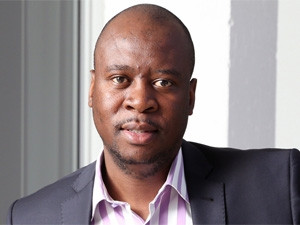
Now is the time for the South African government to realise the benefits of the Internet of everything and start deploying it in government systems, says David Mphelo, Cisco SA executive director for public sector business.
Mphelo says while the capabilities and benefits of the Internet of everything are being highlighted globally, it is more within SA's reach than it might seem. As an example, he mentions the smart meters that will soon be deployed in Johannesburg. These smart meters are not only able to send a monthly reading to the municipality for billing purposes, but can also divide electricity into different streams; for example, swimming pools, geysers and other uses. This will enable the electricity provider to not bring down an entire neighbourhood during periods of load-shedding, but only certain streams of use.
"The technology is there, now we need to see the deployment of the technology with the accompanying infrastructure." He notes, however, it will be pointless to roll out technology that cannot be used due to too high connectivity costs and, therefore, government should continue the fight for affordable Internet.
He points out that while technology in the South African government is generally behind the rest of the world, this is not the case with all state departments. "If you look at SARS [the South African Revenue Service], you see state-of-the-art technology. You are able to completely file your taxes online without needing to go into a SARS office." SARS has also recently deployed a digital customs management system that will lead to a 95% paper reduction. "But then there's also the municipal office somewhere in rural Eastern Cape that has absolute zero technology."
On the question whether the Internet of everything will replace manual labour with technology and thus exacerbate SA's already dire unemployment rate, Mphelo answers that this will not be the case. "The Internet of everything will actually create jobs."
As an example, he mentions the deployment of DSTV in SA, which led to numerous DSTV installation companies being established. He notes, however, that the Internet of everything will mean a "mindset shift" to more business-oriented skills and labour.
Less talk, more action
Mphelo says while government understands the need for the deployment of technology within its systems, there needs to be less talk around the various policies and more implementation. He notes the drive of implementation - or lack thereof - is why there is such a big difference in the quality and quantity of technology deployment in the different government departments.
Government needs to keep skilled people from leaving the country, by encouraging, recognising and rewarding innovation, says Mphelo. He emphasises that sufficient rewarding does not only refer to monetary income, but also to giving innovators the opportunity and market to implement their innovations.
In addition, Mphelo says South Africans need to show more loyalty to home-grown innovation, and local products should be marketed properly. He points out that South Africans, for example, generally prefer local wine, but tend to think local technological innovations are of a lesser quality than imported products. "Let's market our innovation just as effectively as we market our wine."
Share